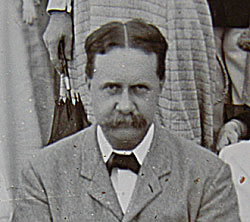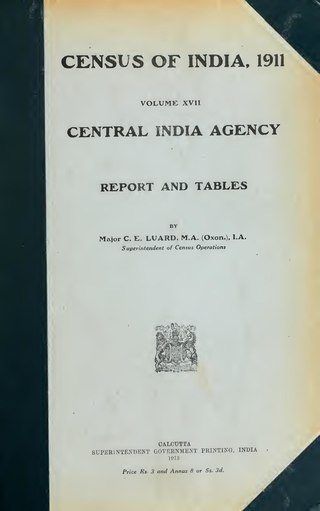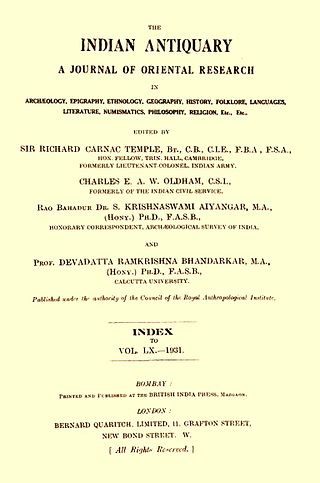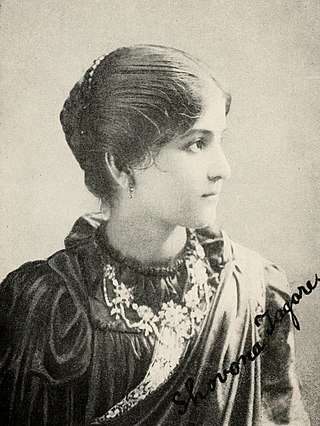
A fairy tale is a short story that belongs to the folklore genre. Such stories typically feature magic, enchantments, and mythical or fanciful beings. In most cultures, there is no clear line separating myth from folk or fairy tale; all these together form the literature of preliterate societies. Fairy tales may be distinguished from other folk narratives such as legends and explicit moral tales, including beast fables. Prevalent elements include dragons, dwarfs, elves, fairies, giants, gnomes, goblins, griffins, merfolk, monsters, talking animals, trolls, unicorns, witches, wizards, magic, and enchantments.

Meena is a tribe from northern and western India which is sometimes considered a sub-group of the Bhil community. It used to be claimed they speak Mina language, a spurious language. Its name is also transliterated as Meenanda or Mina. They got the status of Scheduled Tribe by the Government of India in 1954.
The folklore of India encompasses the folklore of the nation of India and the Indian subcontinent. India is an ethnically and religiously diverse country. Given this diversity, it is difficult to generalize the vast folklore of India as a unit.

Lieutenant-Colonel James Tod was an officer of the British East India Company and an Oriental scholar. He combined his official role and his amateur interests to create a series of works about the history and geography of India, and in particular the area then known as Rajputana that corresponds to the present day state of Rajasthan, and which Tod referred to as Rajast'han.
The Indian Civil Service (ICS), officially known as the Imperial Civil Service, was the higher civil service of the British Empire in India during British rule in the period between 1858 and 1947.
Human–animal marriage is a marriage between a human and a non-human animal. This topic has appeared in mythology and magical fiction. In the 21st century, there have been numerous reports from around the world of humans marrying their pets and other animals. Human–animal marriage is often seen in accordance with zoophilia, although they are not necessarily linked. Although animal-human marriage is not mentioned specifically in national laws, the act of engaging in sexual acts with an animal is illegal in many countries under animal abuse laws. See zoophilia for more information.

Sir Richard Carnac Temple, 2nd Baronet, was an Indian-born British administrator and the Chief Commissioner of the Andaman and Nicobar Islands and an anthropological writer.

Sir Herbert Hope Risley was a British ethnographer and colonial administrator, a member of the Indian Civil Service who conducted extensive studies on the tribes and castes of the Bengal Presidency. He is notable for the formal application of the caste system to the entire Hindu population of British India in the 1901 census, of which he was in charge. As an exponent of scientific racism, he used anthropometric data to divide Indians into seven races.
William Crooke was a British orientalist and a key figure in the study and documentation of Anglo-Indian folklore. He was born in County Cork, Ireland, and was educated at Erasmus Smith's Tipperary Grammar School and Trinity College, Dublin.

This is a bibliography of notable works about the historical Indian subcontinent as well as the modern-day Republic of India.
This list of the works of William Crooke (1848–1923) represents much of his literary output in pursuit of his interests in ethnology and folklore, for which he was far many years considered to be a leading authority.
The People of India is a title that has been used for at least three books, all of which focussed primarily on ethnography.
Reginald Edward Enthoven was an administrator in the Indian Civil Service of the British Raj and an author of publications related to India, including the three volumes entitled The Tribes and Castes of Bombay that formed a part of the Ethnographic Survey of India.

Census in British India refers to the census of India prior to independence which was conducted periodically from 1865 to 1941. The censuses were primarily concerned with administration and faced numerous problems in their design and conduct ranging from the absence of house numbering in hamlets to cultural objections on various grounds to dangers posed by wild animals to census personnel. The sociologist Michael Mann called the census exercise "more telling of the administrative needs of the British than of the social reality for the people of British India". The differences in the nature of Indian society during the British Raj from the value system and the societies of the West were highlighted by the inclusion of "caste", "religion", "profession" and "age" in the data to be collected, as the collection and analysis of that information had a considerable impact on the structure and politics of Indian society.

The Indian Antiquary: A journal of oriental research in archaeology, history, literature, language, philosophy, religion, folklore, &c, &c was a journal of original research relating to India, published between 1872 and 1933. It was founded by the archaeologist James Burgess to enable the sharing of knowledge between scholars based in Europe and in India and was notable for the high quality of its epigraphic illustrations which enabled scholars to make accurate translations of texts that in many cases remain the definitive versions to this day. It was also pioneering in its recording of Indian folklore. It was succeeded by The New Indian Antiquary (1938–47) and the Indian Antiquary (1964–71).
Gloria Goodwin Raheja is American anthropologist who specializes in ethnographic history. She is the author of several historical works where she explores the concepts of caste and gender in India, colonialism, politics of representation, blues music, capitalism in the Appalachia and other diverse topics. Raheja argues that caste stratification in India was influenced by British colonialism. Monographs on ethnographic history and India have been considered "acclaimed" by the Journal of the Royal Anthropological Institute.
Anna Liberata de Souza was the Indian maid of the Anglo-Indian writer Mary Frere. The stories she told were the basis for Frere's book Old Deccan Days or Hindoo Fairy Legends, Current in Southern India, Collected From Oral Tradition.
Susan Snow Wadley is an American anthropologist.

Shobhanasundari Mukhopadhyay was an Indian writer, known for her collections of folktales. She was the daughter of Hemendranath Tagore and the niece of writer Rabindranath Tagore.
The Ruby Prince is a South Asian folktale, first published in the late 19th century by author Flora Annie Steel. The tale is a local form of the cycle of the Animal as Bridegroom or The Search for the Lost Husband, in that a woman marries a man of supernatural origin, loses him and must regain him.








